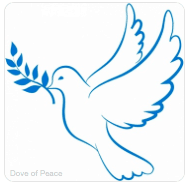Father Gary Morelli died last week. He was one of many priests in this country, in his Church, and yet he was “one.” He was singular. He stood alone.
When I moved to Washington state, my husband and I bought a house, re-organized our work lives, made a life together, but first we selected a second home. For a church is a home, as surely as the one we live in every day. Like home, it is a place where they have to take you in.
We found a special place, one filled with Catholics of every persuasion. I used to say that we had everyone from the kneelers to the dancers at our church. And we did. Each Mass was unique, drawing from the variety of Catholics who frequent churches. We were diverse; we were ecumenical. And my husband and I were not only content, but active in the parish.
When Father Gary arrived as the new pastor, I watched him wander around through the various activities that inundate a church of 2,000 families and he was always smiling. I wondered to myself, “Does this guy have a clue?” I watched some more and his smile persisted, even as he became enmeshed in the delicate politics of a church of many persuasions. And I said to my husband, “Does this guy have a clue?”
But then I worked with him. I managed two capital campaigns and a building project for him. We spoke often as we planned, gave the parish updates, and solved problems. And I learned that the smile did not come from cluelessness. It came from a deep, unfailing faith.
It occurred to me then that, if we all believed what we hear in the gospels, we would all smile all the time. For what reason would we have to not be joyous? And I looked at the sour Christians around me and wondered, “Do these guys have a clue?”
The last time we saw Father Gary was at his assisted living facility. He sat waiting for us to go to lunch, his head slick with the hair-robbing properties of cancer. He saw us—and smiled. And I thought he might be a reincarnation of the Buddha.
Some Catholic priests would not appreciate my mixing of the religions that way, but Father Gary was open to all, the reason his parish was such a welcoming place for everyone, the deep believers like himself, the skeptics, the questioners, and the strugglers. Those who wished to drag the Church back into the days of total subservience and sermons of hell and sin and those who thought women could be priests and that God welcomes us all, no matter our religious persuasion, were at home there.
I miss him deeply. Much more than I had imagined I would. But then, if his parish was home, that makes him family doesn’t it?

